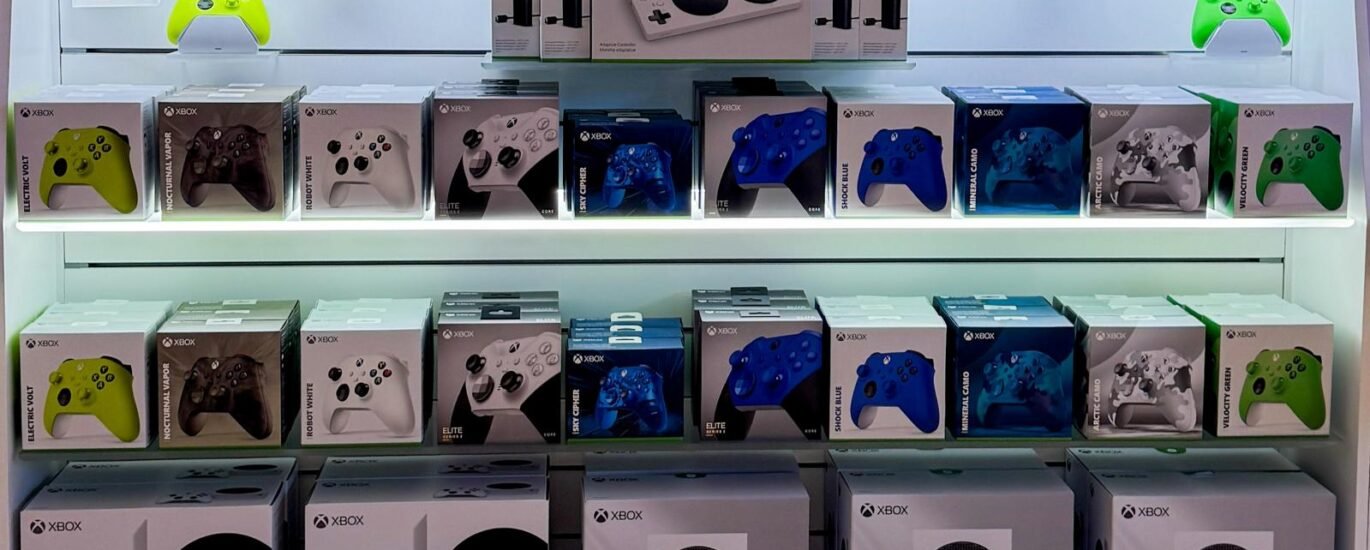


When I started my MBA, I made a conscious decision to remain open—to let the universe guide me rather than committing to a specific industry.
I didn’t have a clear goal or a pre-determined path; I just wanted to immerse myself in learning and let opportunities unfold organically. As I near my summer internship with Xbox, I’ve been asking myself: Why gaming? Why has the universe nudged me into this industry?
During my visit to the Microsoft campus in Redmond, my MSFT mentor, Miguel, shared some insights that illuminated the “why.” These conversations—alongside my own reflections and research—have brought me closer to understanding what makes gaming such a compelling and innovative space to work in. Gaming isn’t just about entertainment; it’s a hub of creativity, technology, and forward-thinking innovation that extends far beyond its immediate boundaries.
One of the most eye-opening revelations from my conversation with Miguel was the sheer scale of the gaming industry. Miguel mentioned that gaming generates more revenue than all other entertainment industries combined. This includes giants like Hollywood and the global music industry. At first, I was skeptical, but as I dug deeper into the numbers, the claim holds true. The global gaming industry was valued at over $200 billion in 2023 and is projected to grow exponentially, driven by innovations in cloud gaming, virtual reality (VR), augmented reality (AR), and mobile gaming.
This massive scale is fueled by gaming’s global reach. Unlike other entertainment industries that are often segmented by language or culture, gaming transcends borders. A gamer in Malawi can connect with someone in Japan or Brazil in real time. This universality makes gaming not just an industry but a powerful medium for storytelling, connection, and community.
Another compelling aspect Miguel highlighted was how gaming is almost always a generation ahead of other industries. Technologies we take for granted today—virtual reality, augmented reality, AI, and even advanced rendering techniques—were once pioneered in the gaming space. Gaming companies constantly push the boundaries of what technology can do because the audience demands immersion, interactivity, and innovation.
For example:
Gaming has revolutionized medical training and research. Technologies like virtual reality (VR) and augmented reality (AR), which originated as gaming tools, are now widely used in medical simulations. Surgeons, for instance, practice complex procedures using VR, which provides a safe, controlled environment for learning. Gamified health apps also engage patients in managing chronic illnesses or rehabilitating after injuries.
The gamification of education has made learning more interactive and engaging. Educational games leverage principles like immediate feedback, rewards, and progressive challenges, borrowed directly from gaming. Platforms such as Duolingo and Minecraft Education Edition use gaming mechanics to teach languages, coding, and even history.
This is of personal interest to me, as I hope to invest in the agricultural industries in the very near future. Though less obvious, the gaming industry’s influence on agriculture is emerging in powerful ways:
The gaming industry’s consistent push for innovation comes from its demand for immersive, interactive, and cutting-edge experiences. To maintain competitiveness, gaming pioneers new technologies, perfects them in a creative setting, and paves the way for other industries to follow.
For agriculture, the crossover might seem less intuitive than for fields like medicine or education, but gaming’s ability to simulate, predict, and train makes it a natural ally. Imagine a future where gaming-inspired VR allows farmers to simulate an entire growing season to plan for optimal yields—or where AI tools born from gaming predict water usage to conserve resources. The possibilities are endless.
What makes gaming so influential is its willingness to experiment. The stakes are high in gaming, but so are the rewards. It’s one of the few industries where failure is seen as a stepping stone to innovation. This culture of experimentation allows gaming to explore new frontiers, from blockchain and NFTs for in-game economies to cutting-edge AI for character development and storytelling.
Other industries, such as healthcare, education, and even agriculture, often look to gaming as a sandbox for testing ideas. For example, AI models developed to create smarter in-game enemies are now used in predictive analytics for farming. Similarly, VR environments designed for gaming are being adapted for training in high-stakes industries like aviation and medicine. Gaming’s ability to create “safe spaces” for trial and error makes it an indispensable player in global innovation.
Beyond the innovation and scale, gaming’s pull for me is also deeply personal. I’ve always been fascinated by industries that combine creativity with structure, and gaming strikes that perfect balance. From an entrepreneurial perspective, gaming offers a unique opportunity to build and shape the future. The industry’s influence extends into sectors I’m deeply passionate about—education, youth empowerment, and even social change.
Gaming is a storytelling medium at its core, and as someone who thrives on connecting with people through stories, I see endless possibilities for impact. Games can educate, challenge perspectives, and foster empathy in ways that few other mediums can.
Working in gaming, particularly with Xbox, feels like an alignment of everything I care about: creativity, innovation, and the potential to make a difference. For me, the question isn’t just Why gaming? but rather Why not gaming?
Gaming is a space where ideas become reality, where creativity meets cutting-edge technology, and where global communities come together. It’s an industry that challenges you to think ahead and act boldly. As someone who has always let the universe guide me, I can see now why this path has opened up.
As I prepare for my summer internship with Xbox, I feel a deep sense of responsibility—not just to contribute to the team, but also to approach this experience as my “MBA project,” a way to bridge what I’ve learned in the classroom with real-world impact. I want to explore how gaming can be leveraged not just for entertainment but for broader applications in education, development, and even agriculture.